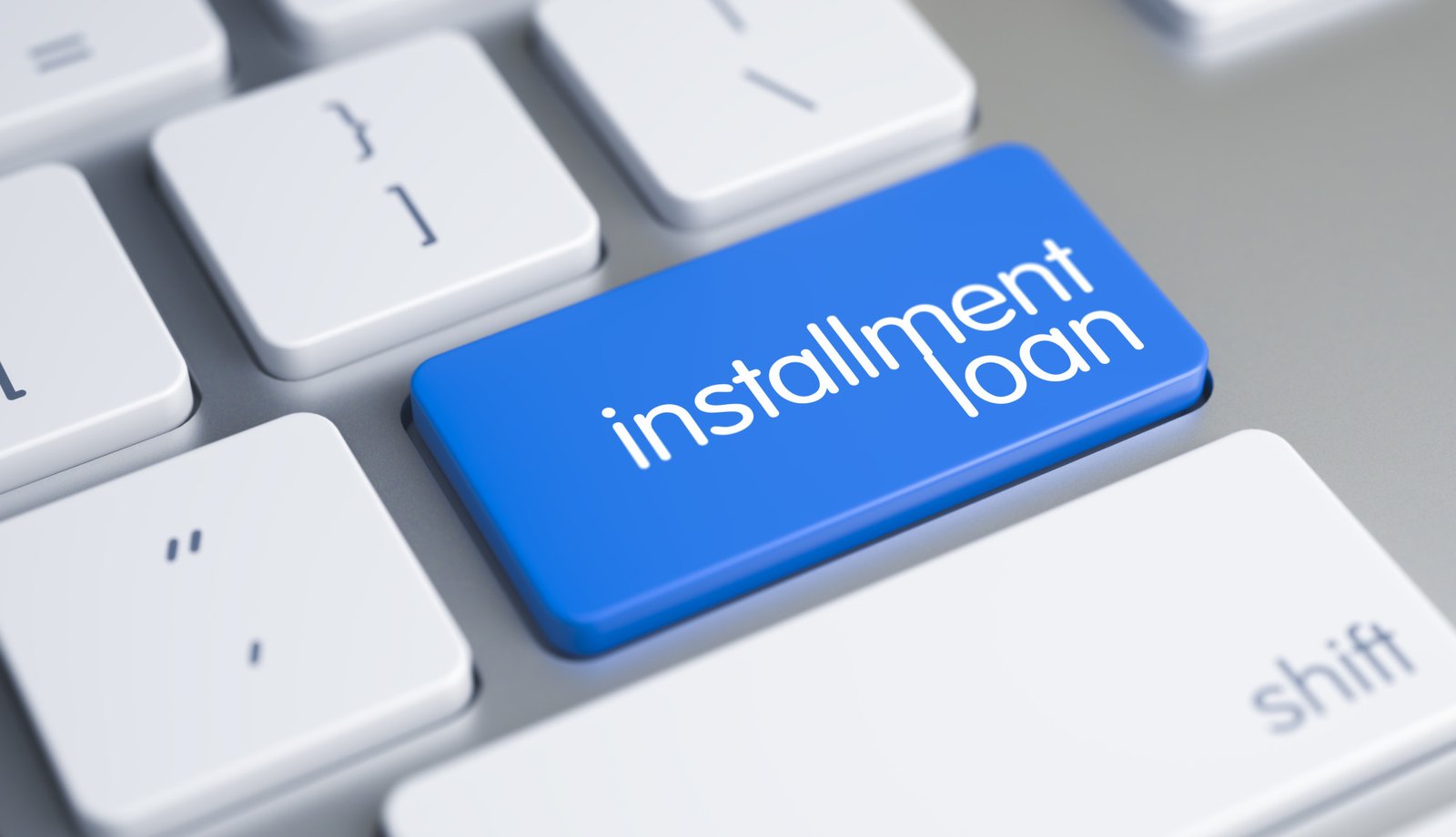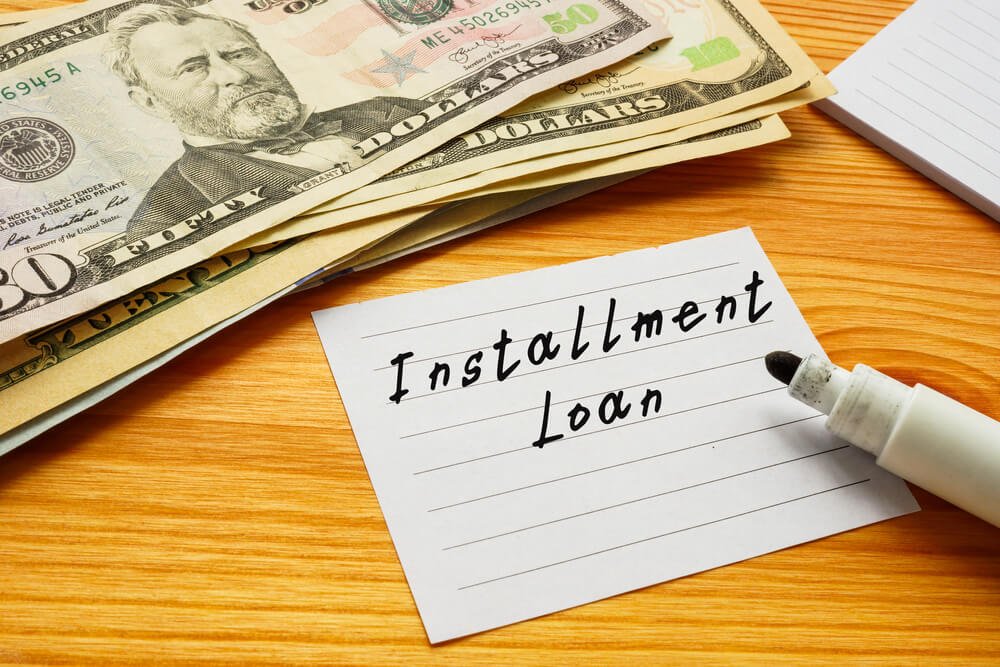Introduction to Personal Installment Loans
Personal installment loans are a type of borrowing option that allows individuals to access funds with a structured repayment plan. Unlike traditional credit lines or payday loans, personal installment loans provide borrowers with a fixed amount of money that is disbursed upfront, which they then repay in regular, scheduled payments over a predetermined period. These loans serve a variety of purposes, including consolidating debt, financing major purchases, or covering unexpected expenses.
The defining characteristic of personal installment loans is that they come with a set repayment term and fixed interest rates. Borrowers are typically required to make monthly payments that include both principal and interest, leading to full repayment by the end of the agreed term. The term length can vary widely, ranging from a few months to several years, depending on the lender and the amount borrowed.
It is essential to contrast personal installment loans with other borrowing products. For instance, payday loans are short-term, high-interest loans meant to cover urgent needs until the borrower’s next paycheck. In comparison, personal installment loans tend to have lower interest rates and extended durations, making them more manageable for repayment.
Credit cards, on the other hand, offer revolving credit, meaning borrowers can withdraw funds up to a certain limit and repay at their convenience, albeit with variable interest rates. This flexibility can lead to complex debt situations if not managed carefully. In contrast, personal installment loans provide clarity and predictability in repayment, allowing borrowers to plan their finances more effectively.
Understanding the structure and terms of personal installment loans can empower borrowers to make informed financial decisions, ultimately enhancing their financial well-being.
Benefits of Personal Installment Loans
Personal installment loans provide a myriad of advantages that can significantly enhance a borrower’s financial health. One of the most prominent benefits is their comparatively lower interest rates when juxtaposed with credit cards. Credit cards often carry exorbitant interest rates that can lead to a cycle of debt. In contrast, personal installment loans typically offer interest rates that are more manageable, making it easier for borrowers to repay the borrowed amount without excessive financial strain.
Another notable advantage of personal installment loans is the structure of fixed monthly payments. Borrowers appreciate the predictability that comes with knowing exactly how much they need to pay each month over a designated period. This eliminates the uncertainty associated with minimum credit card payments, which can fluctuate based on varying factors. Consequently, borrowers can better plan their budgets, contributing to improved financial discipline.
Furthermore, personal installment loans have the potential to help improve a borrower’s credit score. When payments are made consistently and on time, not only does this reflect positively on a credit report, but it also enhances the borrower’s creditworthiness. This can be especially beneficial for individuals looking to improve their credit profiles for future borrowing opportunities.
In terms of flexibility, personal installment loans allow borrowers to select various loan amounts and repayment periods tailored to their individual needs. Whether one requires a small sum for unexpected expenses or a larger amount for significant purchases, personal installment loans accommodate a range of financial needs. With these versatile options, borrowers can find terms that best suit their financial situations.
In conclusion, the benefits of personal installment loans are manifold, providing borrowers with lower interest rates, fixed payments, improved credit scores, and flexible repayment options. These advantages make personal installment loans a compelling financial solution for many individuals seeking to manage their finances effectively.
When to Consider a Personal Installment Loan
Personal installment loans can serve as a valuable financial resource in various situations. Understanding when to consider these loans is essential for making informed financial decisions. One common scenario is debt consolidation. Individuals struggling with high-interest credit card debt might find that consolidating their obligations into a single personal installment loan can simplify payments and potentially reduce interest rates. By obtaining a personal loan with a lower interest rate, borrowers can save on interest payments and pay down their debts more efficiently.
Another instance where a personal installment loan may be beneficial is when financing major purchases. Whether it’s a home renovation, medical expenses, or a vehicle purchase, using an installment loan allows individuals to spread out the cost over time. This can make large expenses more manageable, enabling borrowers to preserve their cash flow while maintaining a budget. Personal installment loans typically offer fixed monthly payments, thereby aiding in financial planning and stability.
Unexpected expenses are a further situation where seeking a personal installment loan might be appropriate. Various unforeseen circumstances, such as emergency repairs, medical bills, or sudden job loss, can strain an individual’s finances. In such instances, a personal installment loan can provide quick access to funds, helping to alleviate immediate financial pressures. The structured repayment plan associated with these loans ensures borrowers can repay the amount borrowed without jeopardizing their financial health.
Ultimately, evaluating personal financial circumstances, including existing debt levels, monthly expenses, and income stability, will help individuals determine when it is wise to consider a personal installment loan. Understanding your specific needs and assessing whether a loan will genuinely support your financial goals is crucial in making the right choice.
How to Apply for a Personal Installment Loan
Applying for a personal installment loan involves several systematic steps that can increase your chances of securing the funds you need. Initially, it is crucial to check your credit score, as this will serve as a basis for lenders to assess your creditworthiness. A higher credit score generally enhances your chances of obtaining a favorable loan amount and interest rate. You can obtain your credit report from various online tools, and reviewing this report helps identify any discrepancies that may need rectification.
After reviewing your credit score, the next step is to gather necessary documents. Common documentation may include proof of identity, income statements like pay stubs or tax returns, and any existing debts. This information not only aids lenders in evaluating your financial situation but also demonstrates transparency. Having these documents organized and on hand streamlines the application process.
Once your documentation is prepared, conducting thorough research on potential lenders becomes vital. Personal installment loans are offered by various financial institutions, including banks, credit unions, and online lenders. Each lender has different eligibility criteria, interest rates, and repayment terms, so it’s prudent to compare these factors before making a decision. Online reviews and ratings can also provide insights into the experiences of previous borrowers.
After selecting a lender, you can submit your application. Most lenders offer online applications for convenience, but some may require you to apply in person. When filling out the application, ensure that all information is accurate and complete to avoid delays. Lastly, consider improving your chances of approval by having a stable income and reducing existing debt levels. Being well-informed and methodical in your approach can significantly ease the process of obtaining personal installment loans.
Understanding the Terms and Conditions
When considering personal installment loans, it is crucial to understand the various terms and conditions associated with them to make informed financial decisions. One of the primary components is the interest rate, which represents the cost of borrowing and can significantly impact the total repayment amount. Interest rates may be fixed or variable; a fixed rate remains consistent throughout the loan term, while a variable rate may fluctuate based on market conditions. Borrowers should compare these rates from different lenders to secure the most favorable terms.
Repayment terms are another critical aspect to consider. Personal installment loans typically offer a structured repayment schedule, with set monthly payments spread over a defined period, often ranging from a few months to several years. Understanding the duration of the loan and the monthly payment amount is essential for budgeting appropriately. Lenders may also provide options for prepayment, allowing borrowers to pay off the loan early without incurring excessive charges. However, it is important to review the loan agreement for any potential prepayment penalties.
Additionally, borrowers must be aware of various fees associated with personal installment loans. These may include origination fees, late payment fees, and additional costs for services such as credit insurance. Late payments can result not only in penalties but also in increased interest rates, further complicating the repayment process. Thus, thoroughly reading the fine print and asking questions about any unclear clauses is vital to avoid unexpected charges down the line.
Overall, grasping the terms and conditions surrounding personal installment loans empowers borrowers to make choices that align with their financial goals. By considering factors like interest rates, repayment schedules, and associated fees, individuals can navigate the loan landscape with greater confidence.
Risks and Considerations
Personal installment loans can provide immediate financial relief and the flexibility to manage expenses, but they come with potential risks that must be carefully evaluated. One of the primary concerns is the burden of debt that these loans can impose. Borrowers often enter into agreements without fully understanding the total repayment amount, which can lead to schedules where monthly payments stretch finances thin. It is crucial for individuals considering these loans to assess their current financial situation and ensure they can comfortably manage the added monthly obligations.
Another risk associated with personal installment loans is the potential impact on a borrower’s credit score. Missing payments or defaulting on a loan can have severe repercussions, as lenders typically report such occurrences to credit bureaus. This can result in a diminished credit score, making future borrowing more challenging and potentially increasing the interest rates on other loans. Therefore, maintaining a consistent payment history is essential for protecting one’s creditworthiness while managing a personal installment loan.
The cost of borrowing is yet another consideration that borrowers should factor into their decision-making process. While personal installment loans can provide access to cash, they often carry higher interest rates compared to other forms of debt, such as secured loans or lines of credit. Additionally, fees associated with loans, such as origination fees and prepayment penalties, can add significant costs to the total amount repaid. It is advisable to read the loan terms carefully and consider alternative financing options that might offer lower costs in the long run.
In light of these factors, individuals must approach personal installment loans with caution and conduct thorough research to avoid financial pitfalls. Balancing the benefits and risks will empower borrowers to make informed decisions aligned with their long-term financial goals.
Alternatives to Personal Installment Loans
While personal installment loans serve as a viable financial solution for many individuals, it is prudent to explore various alternatives that can also meet one’s monetary needs. Each alternative presents its own set of advantages and disadvantages, making it essential to evaluate which option aligns best with your financial situation.
A prominent alternative is the personal line of credit. Unlike traditional personal installment loans, which disburse a fixed amount, a personal line of credit offers the borrower a predetermined credit limit. This allows for flexibility, enabling individuals to withdraw funds as needed and only incur interest on the amount utilized. This option is advantageous for ongoing expenses or emergencies, providing a safety net without the commitment of a lump sum.
Secured loans represent another alternative worth considering. In this arrangement, borrowers pledge an asset—such as a vehicle or real estate—as collateral. Secured loans typically offer lower interest rates compared to unsecured personal installment loans due to the reduced risk for lenders. However, it’s crucial to understand that defaulting on these loans may result in the loss of the asset used as collateral, which can have significant implications.
Credit cards are perhaps one of the most accessible options for individuals seeking financial relief. They come with the flexibility of paying for purchases upfront while allowing the ability to pay off the balance over time. However, it’s essential to be cautious of accumulating high-interest debt, as credit card interest rates can be exceedingly steep. For individuals who consistently pay their balances in full, credit cards can serve as a suitable alternative, providing rewards and benefits without incurring interest.
In conclusion, while personal installment loans are an effective means for managing financial needs, exploring alternatives such as personal lines of credit, secured loans, and credit cards can ensure that individuals make informed decisions tailored to their financial circumstances.
Tips for Managing Your Personal Installment Loan Wisely
Managing a personal installment loan effectively is crucial to ensure financial stability and avoid potential pitfalls. To begin with, creating a comprehensive budget that includes your loan payments is instrumental. By tallying your income alongside your regular expenses, you can allocate an appropriate amount towards your loan payments each month. This practice not only helps in maintaining a sense of control over your finances but also minimizes the risk of falling behind on payments.
Another effective strategy is to make extra payments when your financial situation allows. Many lenders permit additional payments without penalties, which can significantly reduce the total interest paid over the life of the loan. Consider dedicating any bonuses, tax refunds, or other unexpected income towards your personal installment loan. This not only accelerates your repayment timeline but also alleviates future monthly financial burdens.
Maintaining open lines of communication with your lender can also help foster a positive relationship and prevent misunderstandings. If you anticipate challenges in making payments, it is advisable to inform your lender proactively. Most lenders are willing to work with borrowers facing genuine difficulties, and they may offer solutions such as a temporary reduction in payments or a deferment option. Being upfront about your situation demonstrates responsibility and can lead to more favorable arrangements.
Lastly, continuously monitoring your financial health is vital. Regularly review your budget and ensure that your payments are not overly straining your finances. Adjustments can be made as needed, particularly if your income fluctuates or unexpected expenses arise. By staying engaged with your personal installment loan, you can manage it effectively, ensuring compliance with the terms and maintaining your creditworthiness.
Conclusion: Making Informed Financial Choices
As we have explored throughout this blog post, personal installment loans can serve as a strategic tool for those seeking financial solutions. They allow borrowers to access a lump sum of money, which can be repaid over a fixed term through manageable monthly payments. This predictability can aid individuals in better budgeting and tracking their financial commitments.
However, like any financial product, personal installment loans come with their own set of considerations—for example, interest rates, fees, and repayment terms. It is crucial for potential borrowers to thoroughly assess their financial situation before committing to any loan. Understanding your credit score, evaluating your current debts, and recognizing your ability to make consistent payments are essential steps that should not be overlooked. Engaging in self-assessment is key to ensuring that any financial decision aligns with your personal goals.
Moreover, personal installment loans are not one-size-fits-all solutions. They should be evaluated within the context of a broader financial strategy, considering other alternatives such as home equity loans, credit cards, or unsecured loans, depending on one’s financial needs. Borrowers ought to investigate all their options, weighing benefits and drawbacks with a critical eye to determine which solution best fits their unique situation.
Ultimately, being informed and aware of the various components of loans allows you to make decisions that align with your long-term financial health. Whether you opt for personal installment loans or other forms of credit, understanding the implications of your choices is fundamental to fostering financial security.




